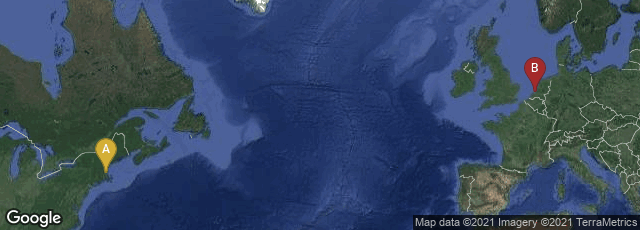
A: Cambridge, Massachusetts, United States, B: Centrum, Den Haag, Zuid-Holland, Netherlands
In 1957 Noam Chomsky's Syntactic Structures was published in S-Gravenhage (The Hague), Netherlands, by Mouton & Co. That it did not initially find an American publisher might have been reflective of the advanced nature of the contents. Through its numerous printings Syntactic Structures, a small book of 116 pages, was the vehicle through which Chomsky's innovative ideas first became more widely known.
Chomsky’s text was an expansion of the ideas first expressed in his “Three Models for the Description of Language," in particular the concept of transformational grammar. The cognitive scientist David Marr, who developed a general account of information-processing systems, described Chomsky’s theory of transformation grammar as a top-level computational theory, in the sense that it deals with the goal of a computation, why it is appropriate, and the logic of the strategy used to carry it out (Anderson and Rosenfeld, Neurocomputing: Foundations of Research [1988] 470–72). Chomsky’s work had profound influence in the fields of linguistics, philosophy, psychology, and artificial intelligence.
Hook & Norman, Origins of Cyberspace (2002) no. 532.